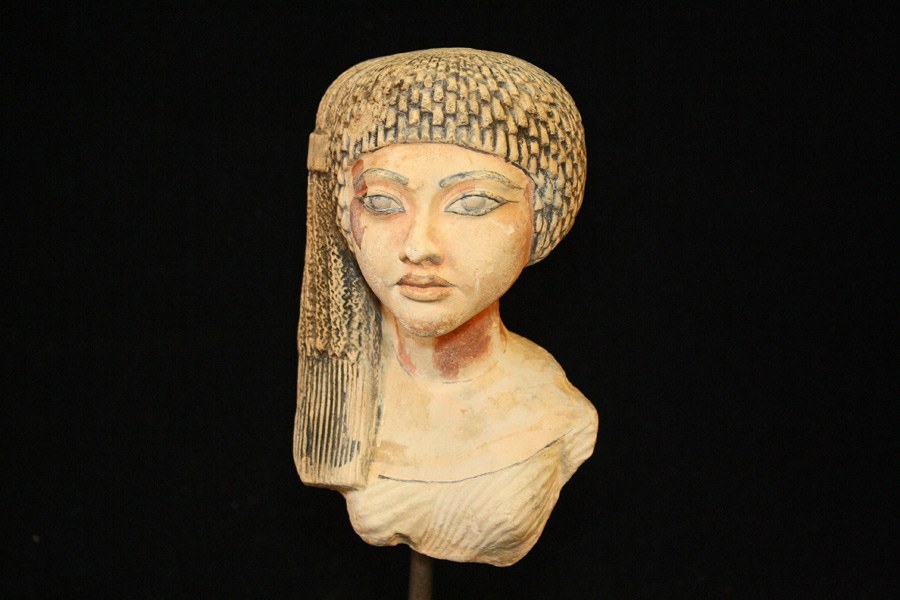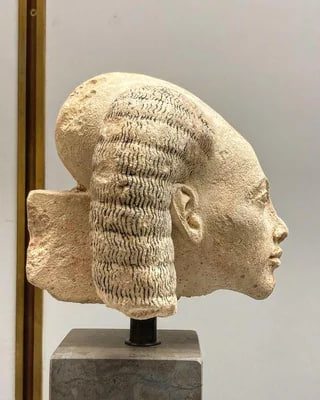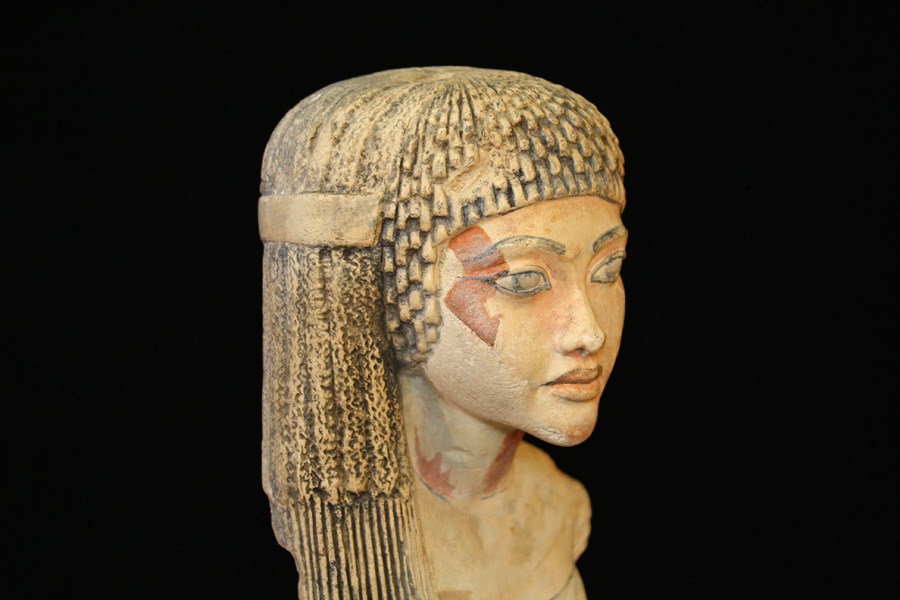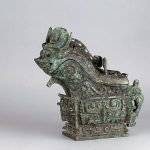Meritaten: The Forgotten Queen-Pharaoh

The head comes from a small limestone statue representing one of the Amarna princesses, likely the eldest, Meritaten. Her hairstyle features a thick sidelock, a traditional symbol of youth.

When Pharaoh Akhenaten died, he left no clear successor. Three of the six daughters he had with Nefertiti had already passed away, while his son, Tutankhaten (later Tutankhamun), was still too young to ascend the throne. Who, then, would take control of Egypt and restore stability after the turmoil of Akhenaten’s religious revolution? Even today, scholars continue to debate this question, as the sequence of deaths and successions—normally well documented in Egyptian history—is unusually obscure for this period.

Some historians have proposed that Nefertiti herself assumed the throne. However, Egyptologist Marc Gabolde of Paul-Valéry Montpellier 3 University has put forward a compelling alternative theory. “We are certain that a queen-pharaoh ruled between Akhenaten and Tutankhamun,” he explains. “The evidence shows it was not Nefertiti, who died only a few months before her husband. The ruler must have been Meritaten.” Meritaten, one of Akhenaten and Nefertiti’s surviving daughters, was also Tutankhamun’s elder sister. (Other reconstructions, however, suggest that Nefertiti outlived Akhenaten.)

Three of the Amarna Letters—a cache of cuneiform tablets discovered in the late 19th century at Akhetaten, Akhenaten’s capital—refer to Meritaten by the name Mayati. In two of them, she is described as holding a near-royal status, Gabolde notes. After Nefertiti’s death, Meritaten no longer appears as “royal daughter” but instead as “first lady,” and later with an almost regal title.

“This progression makes sense only if she became queen-pharaoh,” Gabolde argues. Supporting this view, at least one object found in Tutankhamun’s tomb, originally made for the queen-pharaoh, bears two cartouches: one with her coronation name, Ankhkheperure, and the other with her birth name, Meritaten. “This confirms that the queen-pharaoh was none other than Meritaten,” says Gabolde.











